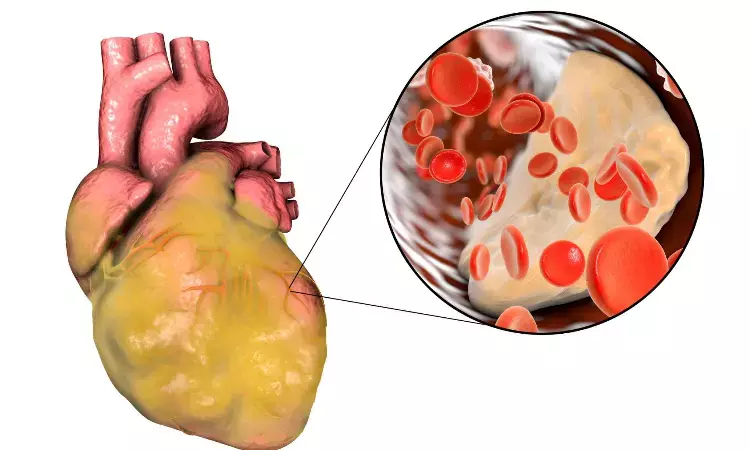- Home
- Medical news & Guidelines
- Anesthesiology
- Cardiology and CTVS
- Critical Care
- Dentistry
- Dermatology
- Diabetes and Endocrinology
- ENT
- Gastroenterology
- Medicine
- Nephrology
- Neurology
- Obstretics-Gynaecology
- Oncology
- Ophthalmology
- Orthopaedics
- Pediatrics-Neonatology
- Psychiatry
- Pulmonology
- Radiology
- Surgery
- Urology
- Laboratory Medicine
- Diet
- Nursing
- Paramedical
- Physiotherapy
- Health news
- Fact Check
- Bone Health Fact Check
- Brain Health Fact Check
- Cancer Related Fact Check
- Child Care Fact Check
- Dental and oral health fact check
- Diabetes and metabolic health fact check
- Diet and Nutrition Fact Check
- Eye and ENT Care Fact Check
- Fitness fact check
- Gut health fact check
- Heart health fact check
- Kidney health fact check
- Medical education fact check
- Men's health fact check
- Respiratory fact check
- Skin and hair care fact check
- Vaccine and Immunization fact check
- Women's health fact check
- AYUSH
- State News
- Andaman and Nicobar Islands
- Andhra Pradesh
- Arunachal Pradesh
- Assam
- Bihar
- Chandigarh
- Chattisgarh
- Dadra and Nagar Haveli
- Daman and Diu
- Delhi
- Goa
- Gujarat
- Haryana
- Himachal Pradesh
- Jammu & Kashmir
- Jharkhand
- Karnataka
- Kerala
- Ladakh
- Lakshadweep
- Madhya Pradesh
- Maharashtra
- Manipur
- Meghalaya
- Mizoram
- Nagaland
- Odisha
- Puducherry
- Punjab
- Rajasthan
- Sikkim
- Tamil Nadu
- Telangana
- Tripura
- Uttar Pradesh
- Uttrakhand
- West Bengal
- Medical Education
- Industry
4C-ACS Trial Supports 1-Month DAPT De-Escalation in East Asian ACS Patients: EuroPCR 2025

While dual antiplatelet therapy (DAPT) has been the standard for managing acute coronary syndrome (ACS) patients undergoing PCI, there is growing recognition of the need for a more patient-centred approach that balances DAPT’s ischaemic benefits with its potential bleeding risks.
The primary endpoint was 12-month net adverse clinical events (NACE), defined as a composite of death, non-fatal myocardial infarction, stroke, ischaemia-driven target vessel revascularisation, and Bleeding Academic Research Consortium (BARC) type 2-5 bleeding.
Results
• At 12-months, NACE occurred in 4.9% of the 1M-DAPT group and 8.8% of the 12M-DAPT group meeting criteria for both non-inferiority and superiority.
• Major bleeding occurred in 0.6% vs 4.6% (HR 0.13; p=0.007) in the 1M-DAPT vs 12M-DAPT group, respectively.
• Ischaemic outcomes were similar in both groups.
Key learnings
While long-term DAPT has been shown to provide early ischaemic benefits reducing life-threatening events such as stent thrombosis, bleeding complications emerging over the long-term maintenance phase can result in clinically significant events associated with increased levels of mortality. Thus, the possibility of having proven de-escalation strategies for DAPT, especially for populations at high risk for bleeding, is a critical addition to available management choices for these patients.
GLOBAL LEADERS, TICO and TWILIGHT, focused on dropping aspirin and continuing P2Y12 inhibitor monotherapy; others, like HOST-REDUCE-POLYTECH RCT and TALOS-AMI, chose to reduce the dose of the P2Y12 inhibitor itself, while TOPIC and TROPICAL-ACS evaluated switching from potent agents to clopidogrel.
The results of the 4D-ACS trial – one-month DAPT followed by prasugrel 5 mg monotherapy in ACS patients who received a DCS – showed a reduction in NACE by 49%, driven in large part by a 77% reduction in bleeding events compared to the 12-month DAPT regime using the same DCS, demonstrating that this type of de-escalation protocol and DCS implantation enhanced safety and reduced bleeding without compromising ischaemic protection for these ACS patients.
Choice of device
All patients underwent PCI with a biolimus-coated drug-eluting stent, the BioFreedomTM Ultra (Biosensors).
Conclusions and PCR recommendations
The 4C-ACS trial showed that a 1-month DAPT de-escalation strategy following drug-coated stent (DCS) implantation is safe and feasible in East Asian ACS patients. This approach reduced bleeding risk without compromising ischaemic protection.
The trial has certain limitations which prevents its conclusions from being applied to the general population of patients undergoing PCI: only one type of stent platform was used; the de-escalation was unguided and the same for all patients in the short-term DAPT arm; the study population was ethnically similar and further trials would need to study the same approach in a more diverse patient population. Still, the results open the door to an attractive option for patients at increased bleeding risk.
Supporting the viability of a shorter DAPT course followed by low-dose prasugrel monotherapy which can minimise bleeding without compromising ischaemic safety offers the physician a viable option for managing their patients. The 4C-ACS trial is another welcome step in the transition from a “rigid, uniform approach” to DAPT to a “risk-adapted, dynamic and patient-centred model of care”.
Reference:
Youngwoo Jang, Sang-Don Park, One-month dual antiplatelet therapy followed by prasugrel monotherapy at a reduced dose: the 4D-ACS randomised trial, EuroIntervention, DOI:10.4244/EIJ-D-25-00331.
Dr Prem Aggarwal, (MD Medicine, DNB Medicine, DNB Cardiology) is a Cardiologist by profession and also the Co-founder and Chairman of Medical Dialogues. He focuses on news and perspectives about cardiology, and medicine related developments at Medical Dialogues. He can be reached out at drprem@medicaldialogues.in


